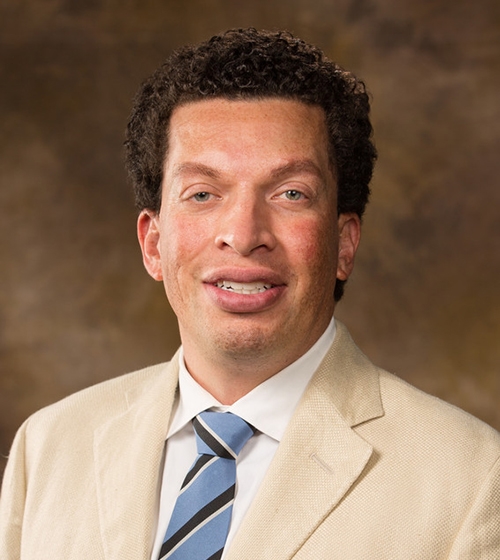FAYETTEVILLE, Ark. – A University of Arkansas civil engineering researcher has been awarded $755,000 from the Department of Defense to develop a new monitoring method for so-called “forever chemicals” in water on military installations.
Julian Fairey, associate professor of civil engineering, will develop a device that can monitor the presence of per- and polyfluoroalkyl substances in water with higher accuracy and lower costs than traditional methods. The Department of Defense is interested in understanding the concentrations of these contaminants, known as PFAS, at their installations across the United States.
This will help the department prioritize cleanup efforts in areas where firefighting foams containing these substances have been used over the last half-century, Fairey said.
Instead of having employees pull water samples, which is relatively time-consuming and expensive, Fairey plans to develop a device the size of a hockey puck that can passively sample the PFAS in water over several weeks to months and create an accurate picture of the level of contamination. The sampler contains different engineered layers to control the uptake rate of PFAS and allow these substances to bind for later analysis in a laboratory.
Passive sampling is not a new technique, but Fairey’s project centers on tackling specific challenges related to PFAS contaminants. “This builds on existing methods by many research groups over the past 30 years,” he said. “The application of this technique to PFAS has many challenges that require reengineering various elements of existing passive samplers.”
The device, which will be tailored to determine the concentrations of 24 PFAS prioritized by the Department of Defense, could also be used to monitor the effectiveness of treatment processes for removing PFAS from water at contaminated sites, Fairey said.
Fairey said the work also has implications for monitoring water outside of military sites.
“We are also developing a passive sampling device for contaminants in drinking water distribution systems, known as disinfection byproducts or DBPs, some of which are known human carcinogens,” he said. “Such a passive sampling device could facilitate more accurate DBP exposure assessments while reducing the associated labor and analytical costs.”
About the University of Arkansas: The University of Arkansas provides an internationally competitive education for undergraduate and graduate students in more than 200 academic programs. The university contributes new knowledge, economic development, basic and applied research, and creative activity while also providing service to academic and professional disciplines. The Carnegie Foundation classifies the University of Arkansas among fewer than 3% of colleges and universities in America that have the highest level of research activity. U.S. News & World Report ranks the University of Arkansas among its top American public research universities. Founded in 1871, the University of Arkansas comprises 10 colleges and schools and maintains a low student-to-faculty ratio that promotes personal attention and close mentoring.
Topics
Contacts
Nick DeMoss, director of communications
College of Engineering
479-575-5697,
